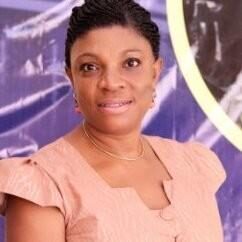By Lenrie Peters
The panic
of growing older
spreads fluttering wings
from year to year
At twenty
stilled by hope
of gigantic success
time and exploration
At thirty
a sudden throb of
pain. Laboratory tests
have nothing to show
Legs cribbed
in domesticity allow
no sudden leaps
At the moon now
Copybook bisected
with red ink
and failures –
nothing to show the world
Three children perhaps
the world expects
it of you. No
specialist’s effort there.
But science gives hope
of twice three score
and ten. Hope
is not a grain of sand.
Inner satisfaction
dwindles in sharp
blades of expectation
from now on the world has you.
About the Poem
Being a human being qualified Lenrie Leopold Wilfred Peters to write a poem titled The Panic of Growing Older, especially having gone past his 20s and 30s (he was born in 1932 and wrote the poem in 1967). Every human being starts out life full of hope, believing he’ll take the moon. But disappointment slowly sets in as the years stealthily pass by. Peters who enjoyed the best of two worlds (as a medical doctor and as an artist) knew about youthfulness, exuberance, dreams and the physiological and the psychological processes of growing up.
Only for a few in the world, is life a harvest of satisfaction. Many at the twilight of age, harvest regrets. Religion thrives on this, with the promise of hope and a harvest of satisfaction at the end of life many fling to it looking forward to the utopian place of satisfaction and joy.
Aside the subject matter of this famous poem which made the list of prescribed poems for Literature in the West African Examination Council (WAEC) of 2016 -2020, two uncommon features of the language of literary criticism stand out. One is the figure of speech known as Litotes and the other the rhythm of poetry called Caesura.
Litotes
Litotes is a figure of speech that employs understatement. In it, an affirmative is expressed by a negative of the contrary. By using double negatives like, ‘not bad’ or positive statements expressed by negating opposite expressions, ‘She’s not unkempt at all’; ‘I’m not unaware of the dangers of bungee jumping, etc.’ Peters writes, ‘The pains of not meeting up with one’s expectation cannot be seen in laboratory test.’ And ‘The copybook of life’ which ordinarily should be filled with achievements, are instead filled with failure marks of ‘red ink’; ‘hope is not a grain of sand’ and finally, ‘inner satisfaction dwindles in sharp blades of expectation’ (meaning that a harvest of dissatisfaction is what mortal man gets at the leaps of milestones of time/age – nothing to show for all man’s efforts at the twilight of age).
Caesura
In the rhythm of poetry, caesura is a rhetorical break in the flow of sound; it is an interruption, a break in the flow of sound caused by a pause in the middle of a poetic line rather than at the end. It’s a break in the middle of a sound in a verse. We can see this on lines 11, 23 and 27 of the 32 line poem.
In line 10/11 the interruption is seen in: /a sudden throb of pain. Laboratory tests…/
Line 23: /the world expects it of you. No …/
Line 27: /of twice three score and ten. Hope…/
These are some of the uncommon literary tools employed by Lenrie Peters in his 1967 poem, The Panic of Growing Older that stand the poem out, making it more enjoyable.
About the Poet
Lenrie Peters was a Gambian writer, poet, educationist, singer, broadcaster and medical doctor. He was born in Bathurst (renamed Banjul in 1973) Gambia on September 1, 1932. He got his early education in Bathurst (now Banjul) and Freetown in Sierra Leone before moving to England where he earned a medical degree from Trinity College, Cambridge in 1959, with further studies in surgery. He worked with the University College Hospital of London between 1956 and 59. In 1959, Cambridge awarded him a diploma certificate in surgery.
Curiously, Peters also earned a Master’s degree in Arts. And between 1954 and 55, he was the president of African Students Society of Cambridge. From 1965 to 1968, Peters worked with the BBC as Journalist of African Programmes.
Peters returned to The Gambia in 1969.
His only novel, The Second Round (1965) is a semi-autobiographical story of the disenchantment of a young doctor who returns to Freetown from England after his medical studies only to encounter an unsettling situation at home. His people have rejected their core traditional values but have no substitutions for them. The young doctor, unable to settle down, moves from one relation to another for a while before finding a job in a remote village hospital.
Peters also wrote two collections of Poetry, Poems ((1964) and Satellites (1967) which are also somehow pessimistic but with rays of hope that good will prevail as his people embrace discovery. Many of his poems criticise contemporary African politics and western civilization and express dissatisfaction.
In 1971, Peters published a collection of verse titled Katchikali and in 1981, he published Selected Poetry. He also published in an array of journals, some short fiction and some political commentary.
Also, he was the president of the Historic Commission of Monuments of the Gambia and the president of FESTAC Community in 1977.
From 1979 to 1987, Dr Lenrie Peters was the president of the Board of Directors of the National Library of The Gambia and Gambia College.
From 1985 and 1991, Peters was member and president of WAEC. In 1995, he was a member of the jury for the Literary Prize of the Commonwealth.
Peters died in Dakar, Senegal on May 28, 2009 at the age of 77.
N/B – it’s worthy of note that Dr Lenrie Peters finished his time on earth as an achiever. Man should not judge either himself or others hastily, but should give his time and efforts in the area he feels a call to achieve purpose leaving the judgement to his maker.













